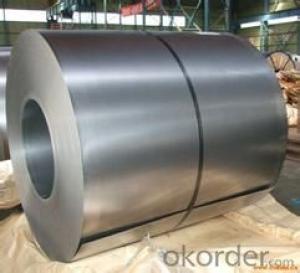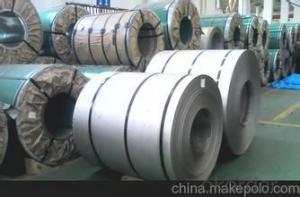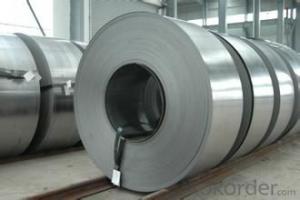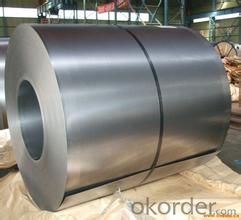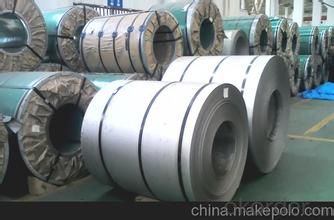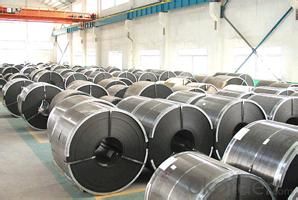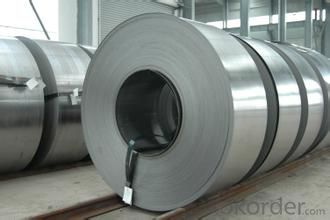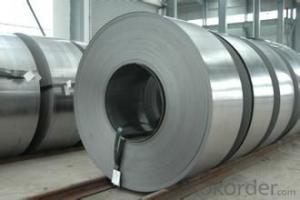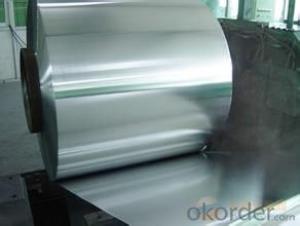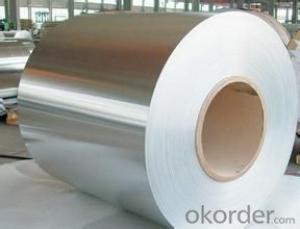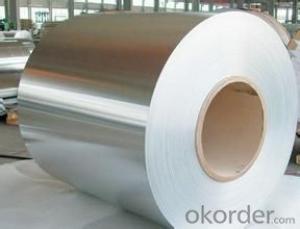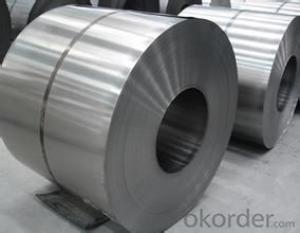excellent cold rolled steel coil / sheet -SPCCT
- Loading Port:
- China main port
- Payment Terms:
- TT OR LC
- Min Order Qty:
- 30 m.t.
- Supply Capability:
- 5000000 m.t./month
OKorder Service Pledge
OKorder Financial Service
You Might Also Like
Characteristics:
1. Commercial quality suitable for bending fabrication and simple forming; this is the type in greatest demand.
2. Drawing quality second only to that of SPCEN. Excellent uniformity.
3. Deep-drawing quality.With metallurgically controlled grain size, it retains its beautiful finish even after being deep-drawn.
4. Extra-low-carbon steel sheets with highest workability
General Application of Cold Rolled Steel Coil:
1. Refrigerators, cabinets, power distribution baords and drums.
2. Automobile floor and roof panels.
3. Automobile fenders and quarter panels
4. Automobile fenders and quarter panels
Quality of the goods could be guaranteed. The finished product has a variety of excellent capabilities, such as continuous rolling, degreasing, annealing, skin pass, slitting and cut to length line etc. Along with it many rocessing capability and smooth, flat surface. It’s widely used in outdoor and interior decoration, furnishing
- Q: My boyfriend is a loyal follower of this guy called Dr. Steel.
- Dr. Steel is an extremely complex phenomenon, a bit of a metaphorical nesting doll. On the surface, Dr. Steel can appear to some as simply a method actor musician with an over-the-top gimmick. Just underneath that facade lies an enigma; he makes some people wonder if he's really serious, just trying to entertain, or completely barking mad. But underneath the second facade, Dr. Steel is really acclaimed comic-book writer and chaos magickian, Grant Morrison. Make no mistake, he really thinks he is Dr. Steel. He has taken method acting and ceremonial magick to the highest levels, and fully intends to take over (or make over) the world. What's more, in the three short years since handing over his comic-book authorship to a ghost writer, he has amassed tens of thousands of followers worldwide. I've done several polls among Dr. Steel fans, and the results show that for every one person who has officially signed up, there are ten more loyal followers who have not.
- Q: What is the average shelf life of a steel coil?
- The average shelf life of a steel coil can vary depending on various factors such as the type of steel, storage conditions, and maintenance practices. However, on average, a steel coil can have a shelf life of around 6 to 12 months if stored properly in a controlled environment with suitable temperature, humidity, and protection from corrosion. Regular inspection and maintenance can extend the shelf life of a steel coil further.
- Q: How are steel coils used in the production of agricultural implements?
- Steel coils are used in the production of agricultural implements as they are formed and shaped into various components such as blades, tines, or plowshares. These sturdy and durable steel components are then assembled into agricultural machinery like plows, cultivators, or harrows, which are essential for tasks like tilling soil, planting crops, and harvesting. The strength and resilience of steel make it an ideal material for agricultural implements, ensuring they can withstand the demanding conditions of farming and contribute to efficient and effective agricultural operations.
- Q: How are steel coils used in the production of metal staircases?
- Steel coils are used in the production of metal staircases as the main raw material. They are uncoiled and cut into sheets, which are then shaped and welded to create the structural components of the staircase, such as the stringers and treads. The strength and durability of steel make it an ideal material for constructing sturdy and long-lasting staircases.
- Q: How are steel coils used in the production of steel connectors?
- Steel coils are used in the production of steel connectors as they serve as the primary raw material. The coils are unrolled and then processed through various manufacturing techniques, such as cutting, stamping, and bending, to shape them into the desired connector forms. These connectors are crucial components used to join different steel structures together, ensuring strength, stability, and structural integrity in various applications like construction, automotive, and engineering industries.
- Q: What are the benefits of using stainless steel coils?
- There are several benefits to using stainless steel coils in various applications. Firstly, stainless steel coils are known for their exceptional strength and durability. This makes them highly resistant to corrosion, rust, and stains. As a result, stainless steel coils can withstand harsh environmental conditions and are suitable for both indoor and outdoor use. This longevity ensures that the coils will last for a long time, reducing the need for frequent replacements and saving costs in the long run. Additionally, stainless steel coils offer excellent heat resistance. They can withstand high temperatures without warping or losing their structural integrity. This makes stainless steel coils ideal for use in applications that involve extreme heat or thermal cycling, such as in industrial furnaces or heating systems. Another advantage of using stainless steel coils is their versatility. Stainless steel is a highly adaptable material that can be easily formed into various shapes and sizes. This allows for customization and flexibility in design, making it suitable for a wide range of applications in different industries. Whether it is used in construction, automotive, aerospace, or even household appliances, stainless steel coils can be tailored to meet specific requirements. In addition to their physical properties, stainless steel coils are also favored for their hygienic properties. Stainless steel is non-porous, which means it is resistant to bacteria, mold, and other contaminants. This makes it an excellent choice for applications that require strict cleanliness and hygiene standards, such as in the food and beverage industry or medical equipment. Lastly, stainless steel coils are also environmentally friendly. They are fully recyclable, meaning they can be melted down and reused to create new products. This helps to reduce waste and conserve resources, making stainless steel coils a sustainable choice for many industries. Overall, the benefits of using stainless steel coils include their strength, durability, heat resistance, versatility, hygiene, and environmental friendliness. These qualities make stainless steel coils a reliable and cost-effective solution for a wide range of applications.
- Q: I am getting a barn soon and I was debating between wood, and steel. I think steel would look nicer [painted of course] and I was wondering which is cheaper. Any extra info would be great. Thanks x
- The okorder
- Q: How do steel coils contribute to the manufacturing of oil and gas equipment?
- Steel coils are essential in the manufacturing of oil and gas equipment because they provide the necessary raw material for various components. Coils are used to fabricate pipes, valves, tanks, and other critical parts, ensuring their strength, durability, and resistance to high pressure and extreme temperatures. Additionally, steel coils can be easily shaped and formed into different sizes and specifications, enabling manufacturers to meet the specific requirements of oil and gas equipment.
- Q: What are the different coil cutting machine options available for steel coils?
- Steel coils can be cut using various machines, each designed to meet different needs and specifications. The available options are as follows: 1. Slitting Machine: This machine slices large steel coils into narrower strips or slits. It incorporates a circular blade that moves across the coil's width, cutting it into desired widths. Industries like automotive, construction, and manufacturing commonly use slitting machines due to their ability to handle a wide range of steel coil thicknesses. 2. Cut-to-Length Machine: This machine is used to cut steel coils into specific lengths. Equipped with a shearing mechanism, it cuts the coil based on programmed length requirements. Cut-to-length machines are particularly beneficial when precise and consistent lengths are necessary, for instance, in the production of steel sheets or plates. 3. Rotary Shear Machine: Designed to cut steel coils into smaller pieces or squares, this machine employs a rotating drum with multiple cutting blades. It shears the coil in a continuous process, making it suitable for industries that require smaller steel pieces for further processing or assembly. 4. Guillotine Shear Machine: Equipped with a vertically moving large blade, this machine is used for high-speed and high-precision cutting of steel coils. It is commonly employed in heavy-duty industries like shipbuilding and metal fabrication, as it can handle thicker steel coils. 5. Laser Cutting Machine: Laser cutting machines provide a highly precise and versatile method for cutting steel coils. By using a focused laser beam to melt or vaporize the material, they ensure clean and accurate cuts. Laser cutting machines are suitable for a wide range of steel coil thicknesses and can handle complex shapes and patterns. These examples illustrate the available options for cutting steel coils. The choice of machine depends on factors such as coil thickness, required cutting precision, desired output volume, and specific application requirements.
- Q: I know that it is used for katanas and swords but what is it and is it good i am pretty sure that it is the process of the steel but can I have a little more information.
- It's a special type of steel that was made in Syria. It is used to make swords or knives. It's mostly used in Middle East and South Asia.
Send your message to us
excellent cold rolled steel coil / sheet -SPCCT
- Loading Port:
- China main port
- Payment Terms:
- TT OR LC
- Min Order Qty:
- 30 m.t.
- Supply Capability:
- 5000000 m.t./month
OKorder Service Pledge
OKorder Financial Service
Similar products
Hot products
Hot Searches
Related keywords
